Key finding
The food business is failing people

Striking lack of urgency to protect human and labour rights
The food and agriculture sector is globally recognised as a high-risk sector for human and labour rights abuses, including child and forced labour. The sector is characterised by long and sometimes opaque supply chains, highlighting the need for companies to ensure they are aware of human rights risks and act on them accordingly. While there are clearly defined and globally agreed frameworks, such as the United Nations Guiding Principles on Business and Human Rights and the International Labour Organization’s conventions, our research finds that companies are lagging behind.
Just 8% of the 350 companies demonstrate having a comprehensive human rights due diligence mechanism in place, which is essential for identifying, assessing and acting on human rights risks in their business activities and supply chains. Moreover, to ensure elimination of forced labour across business activities and supply chains, we have assessed whether companies are publicly stating that they will not use forced labour and require the same of their supply chain partners. This includes the requirement that suppliers do not retain workers’ personal documents or restrict workers’ freedom of movement. The vast majority of companies (304) do not have this in place.
To prevent child labour, we have assessed whether companies are publicly stating that they will not use child labour and require their supply chain partners to do the same. Over half of companies (202) do not explicitly require their supply chain to prohibit child labour. This is unacceptable, if we aim for our global food system to leave no one behind.
Living wage is catalytic to change
Not only is food a necessity of life, it is also the source of livelihoods for millions. However, many workers in the agricultural sector struggle to get by. Two thirds of the global population living in extreme poverty, surviving on less than USD 1.90 per day, are agricultural workers and their dependents. Farm, factory and plantation workers are among the most vulnerable and often exposed to income insecurity as employment is typically informal, seasonal and underpaid.
Just 9% of companies demonstrate they are taking steps towards paying living wages. Only two companies have fully committed to doing so by setting targets for paying living wages in their business activities and supply chains. The payment of living wages can have a transformational effect on the lives of millions and can contribute to the eradication of other human rights abuses such as child labour, as increased income can allow families to send children to school.
Companies are enhancing farmer resilience, but overlooking living income
The ability of farmers and fishers to earn a living income is critical to ensure their viability and economic success. Small-scale farmers and fishers often lack opportunities to access markets to sell their products. They can benefit significantly from increased knowledge, technology and resources that multinational companies can provide. Climate change is further exacerbating their vulnerability, particularly in developing countries. 54% of companies demonstrate commitments or activities to support the resilience of farmers and fishers. However a more structured approach is needed and only a minority of companies report on the impacts of their support activities. 8 out of 350 companies demonstrate leading practice by providing the structural and holistic support that is needed to move towards ensuring living incomes for farmers and fishers. By reporting on their impacts, these companies allow for progress to be measured.
